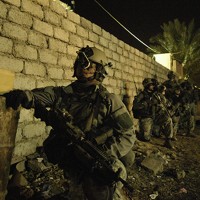Recently, Chairman of the Joint Chiefs of Staff Gen. Martin Dempsey released a document entitled, “Capstone Concept for Joint Operations: Joint Force 2020,” (.pdf) known by its milspeak acronym CCJO. At first glance, this might not seem noteworthy. After all, the U.S. military churns out concepts and doctrine on a regular basis, most of which only interest the military itself, the defense industry and perhaps security geeks. But the new CCJO is different. American security strategy and the U.S. military are undergoing a major transition, and this document provides an important window into what the armed forces expect to do in the future and, in a broad sense, how they will do it. As a result, it is illuminating both for what it talks about and what it doesn't.
The CCJO is an ambitious document intended to provide a "high-order vision of how the future force will operate." Its central theme is "globally integrated operations." According to this idea, the U.S. military must learn to "quickly combine capabilities with itself and mission partners across domains, echelons, geographic boundaries and organizational affiliations." As threats and challenges emerge, networks of U.S. and partner forces will fluidly "form, evolve, dissolve and reform."
Looking past the convoluted prose, these are important ideas that commit the U.S. military to move beyond its cumbersome, rigid and bureaucratic mindset by mirroring organizational changes sweeping the private sector. The military must do so in order to master the exploding complexity and interconnectedness of the global security environment. Future conflict, according to the CCJO, will involve more than just traditional armed forces as a wide range of nonstate organizations -- including militias, private or corporate security forces, terrorists, insurgents and transnational criminal organizations -- increasingly populate the battlefield. Because of the diffusion of technology, many of these nonstate actors will have advanced capabilities.

